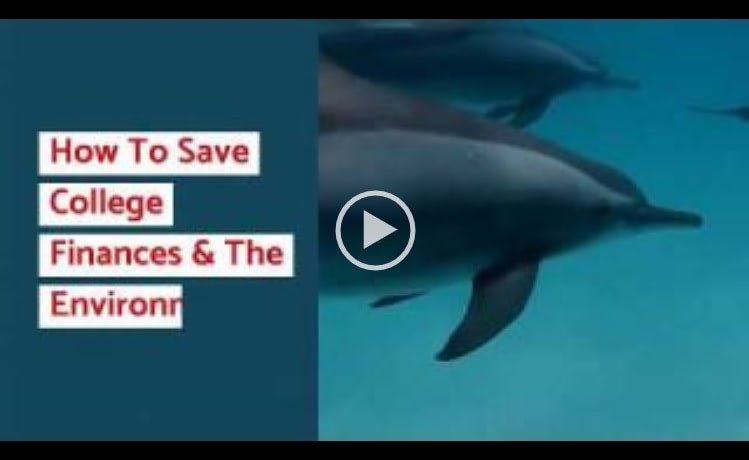Do Colleges Understand The #FutureofEducation?

#Education and #skills are about behavioural change
For example, when we teach a child to ride a bike their behaviour changes from falling off the bike to riding competently.
Ditto when we train bricklayers, hair stylists or catering students. They become competent and demonstrate new behaviors. Eventually they can competently lay bricks, style hair and cook great tasting foods.
And the accountants we train can do more than just talk theory. They can not only maintain the financial accounts of bricklayers, stylists and chefs, they can also submit their tax returns and advise them on a range of financial matters.
Behavioural Change is an Ongoing Process
However, behavioural change isn’t something that suddenly happens one day at the end of the students’ course. It’s an ongoing process that, as teachers, we should encourage every lesson. Learning is incremental, as is behavioural change.
As children learn to ride a bike they don’t train for weeks and suddenly go from falling off to being competent and safe on the road. It’s a process where they gradually, with behavioural change being evidenced. Ditto when they learn to swim. Their first success might only be five strokes. Then it’s ten. Then a width and a length and progress is built upon success. Eventually they may become good enough to compete and even reach Olympic standard. But it all started with small behavioural changes.
So it should be with colleges.
Behavioural Change at College Level
To misquote Jane Austen, “It is a truth universally acknowledged, that colleges are facing great change. Indeed the Independent Commission on the College of the Future talks of the “seismic shifts happening across the UK”. They talk of serving local communities within a global context.
But, bearing in mind that behavioural change is an ongoing process, where is their incremental behavioural change?
Certainly Education 4.0 will be different and we’ve seen some change move from the Victorian classroom chalk and talk pedagogies with an increased use of IT. And some colleges are moving at a rapid pace as indicated in this Jisc Transforming the Future of Education video.
As Basingstoke staff mention, technology is shaping what the future of education will look like. Lectures are largely obsolete and we need staff to create meaningful one to one mentoring.
Sadly too few colleges are acting on the vision and expertise of those such as Bastingstoke that are leading this very necessary change.
Behavioural change isn’t something that can wait until the Commission has finished its lengthy deliberations. It needs to be part of an ongoing process that is embedded in colleges now.
The Commission has spent many months discovering and deliberating to get to the stage where it has issued a progress report that asks more questions. As an example of the Socratic method it is excellent. But of course the Socratic method depends on asking and answering questions. There is no emphasis on behavioural change.
This lack of change is so embedded that the Commission has spent 10 months revealing what we should expect a Level 3 student to discover in a few hours of online research. I’ve yet to see reports of anything new, anything that isn’t already recorded elsewhere.
The lack of behavioural change is further emphasised by the way the Commission reports its news. Forget contemporary communications technologies such as video, audio or a the use of complete sentences. As the screengrab demonstrates the Commission has instead utilised noughties inspired “word clouds” to tell us what respondents said.
What role will the #CollegeoftheFuture play in ten years’ time across the UK?
Here’s what the respondents to our consultation said.
We still want to hear from you as we move towards drafting recommendations. Share your thoughts & find out more here: https://t.co/RaKisCwBSa pic.twitter.com/Kb7KMvZH3W
— Commission on the College of the Future (@CollegeComm) January 23, 2020
Perhaps readers can tell me what the respondents meant when they uttered single words such as “current”, “colleges”, “communities” and “all” because without them being inserted into sentences they are totally abstract and without context. They are meaningless.
If our students had used single words, to try to communicate answers to a complex series of questions in an exam, we would have quite rightly marked their results with “must do better”.
College Admin Could Use AI
Colleges also need to make changes beyond the curriculum. Admin and communications are another area that can be improved with great savings in time and money, plus greater student satisfaction.
In 2105 Georgia Tech recruited Jill Watson to answer FAQs from students. Students thought her friendly as she provided prompt and accurate answers online. They were very surprised when it was revealed that Jill wasn’t a real person. She was a piece of software that was almost good enough to pass the Turing test.
When I heard that Basingstoke College were working on a similar system I knew they would almost certainly see a positive impact. AI-based software such as IBM Watson has the potential to revolutionise much of what we do in the classroom, within admin and marketing. The potential savings plus improved delivery is huge.
But why are more colleges not trialling this type of software? It’s not a closely guarded secret. In fact, I wrote about it in May 2017.
Are Bots Better Than Trainers? https://t.co/uPSmqLGh2H #Training #AI #BillGates #Bots #ArtificialIntelligence #AreBotsBetterThanTrainers pic.twitter.com/ryQZvrqpRQ
— Stefan Drew (@StefanDrewe) October 8, 2018
And for those that fear letting a bot run loose in the classroom there are alternatives. I’ve installed chatbots on several college websites and the results have been more FAQs answered by AI and fewer unnecessary phone calls. This means that more time can then be given to more complex questions that go beyond those most frequently asked.
Students Are Worried
As I point out in my latest video students are worried about the environment and Global Action Plan write that 77% of students are anxious about climate change.
77% of students say that thinking about climate change makes them anxious: #iwill Transform Our World – New hub for teachers, launches a set of free resources to help manage #ClimateAnxiety in the classroom Half of teachers feel ill-equipped to deal with… https://t.co/uK1ryl4Gyq pic.twitter.com/JQU85tcGcy
— FE News – The #FutureofEducation News Channel (@FENews) January 28, 2020
Students are looking for leadership. I believe colleges should be providing the exemplars they need.

In the video I point out that many of the meetings the Commission have held could have been more sympathetic to the students’ concerns. In a world where we are moving towards more online teaching, there should have been consideration given to holding meetings online. This would have saved travelling time, reduced principals’ expenses, reduced CO2 and demonstrated leadership.
If the Commission truly recognise the “seismic shifts happening across the UK” why do they not exhibit behavioural change? Why I ask myself, in a world where college competitors are running income-generating virtual conferences, do college leaders need to travel over the Irish Sea for their latest meeting?
So will colleges and the AOC accept the challenges I make in the video and offer online access to their courses and conferences? The commercial world and many private providers are already doing this and it’s not that difficult if you have the right mindset.
Colleges Thinking Globally
The Commission is not alone in thinking about the college of the future. Questions are being asked in the US as well. In a slightly different context, Johann Neem says “Instead of the universities getting rid of professors, what if we got rid of the university?”
In the same context, instead of asking what we want of colleges in the future perhaps the commission should focus on the customer, whether they want colleges and, if so, what they want from them.
Neem goes on to say, “We’re afraid that, unless there’s a credential with a degree, nobody’s going to want to learn from me,” and “We insult people when we pretend that the only way they’re going to develop their intellect is because we force them to.” So he might not appeal to everyone.
Education is 24/7
The exponential change that Shafi Ahmed discusses in the Jisc video is just the tip of the iceberg. It has already led to students expecting 24/7 access to their courses. At a more mundane level that also translates into seven days a week delivery.
Colleges complaining of underfunding are ignoring an opportunity goldmine. There is a proven need for full cost training at weekends and, as Neem points out, traditional qualifications aren’t always sought. In fact I’d argue for microcredentials, if quals are sought at all.
The following screengrab from Twitter demonstrates how private providers are filling weekend courses with leisure cooks and professional chefs. Interestingly this provider was also full of students during the two weeks that most colleges closed for Christmas.
The question I posed in my tweet about colleges being open over the weekend has yet to be responded to by any college. Perhaps that’s because they are all closed.
Private providers aren’t only running cookery courses. As I write this on a Sunday I know of courses being run today in subjects as diverse as navigation, governance and geology to watercolours and zoology. I suspect that the negative reports I read. about the uptake of adult education. ignores many of the people delivering and taking these courses.
Are Colleges Demonstrating Education Leadership?
There are some exemplars of good practice evident. A few are demonstrating behavioural change. But too few are demonstrating the change that is implicit in the quest for the college of the future.
It’s no good spending a year or more investigating but remaining inactive. As a child learns to ride their bike they constantly fall off and have to pick themselves up again. Slowly they improve. It’s the taking action and learning to balance, the process of incremental change leading to behavioural change, that leads to success.
When will colleges learn from children? When will the talking stop and incremental behavioural change happen?
Staying with what we know an easy and safe option. But is there really are seismic shifts happening across the UK, then surely they should be replicated in colleges now.
“Conformity is the jailer of freedom and the enemy of growth.” JFK
Stefan Drew, Founder and CEO, Stefan Drew Associates












Responses